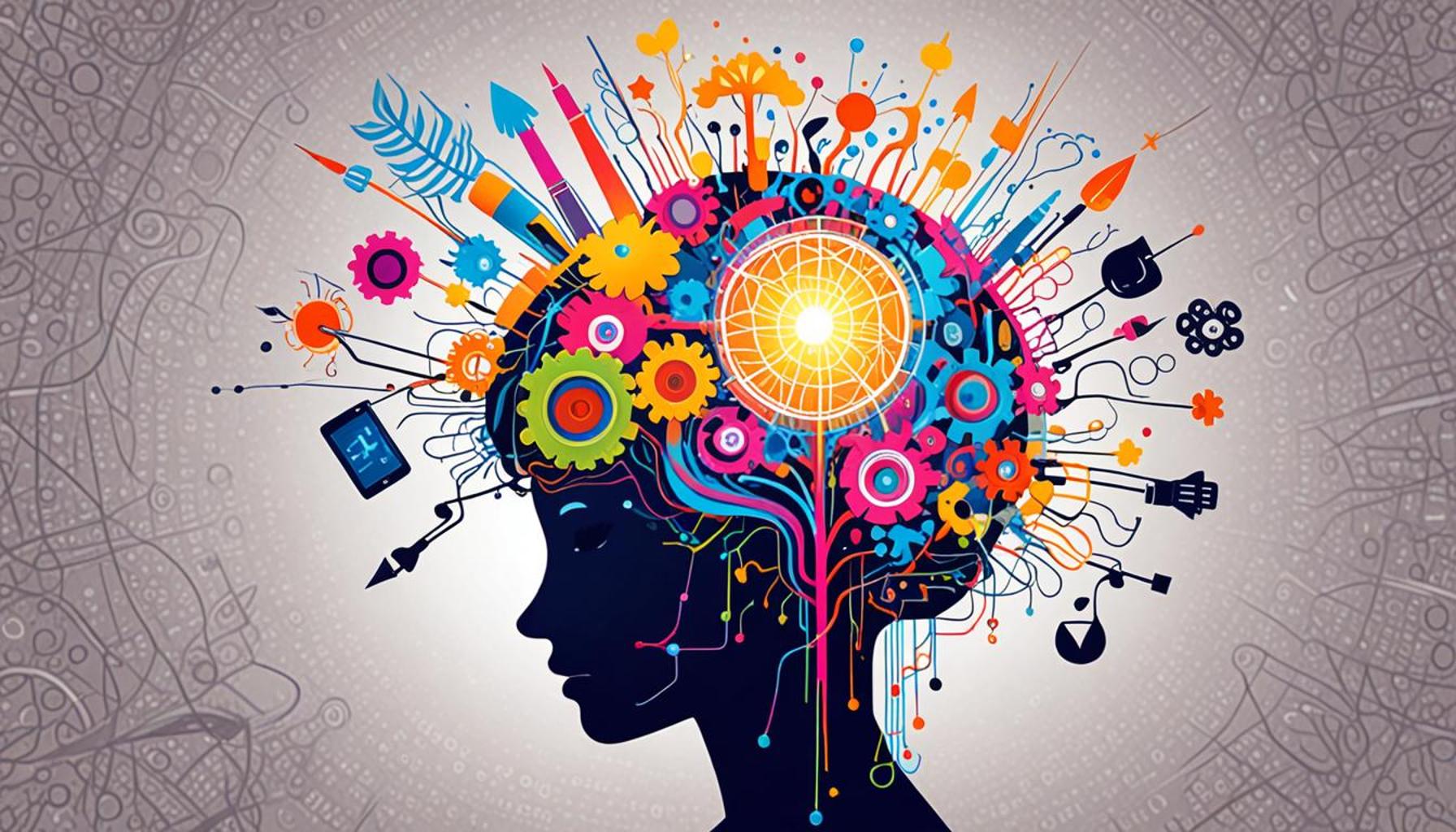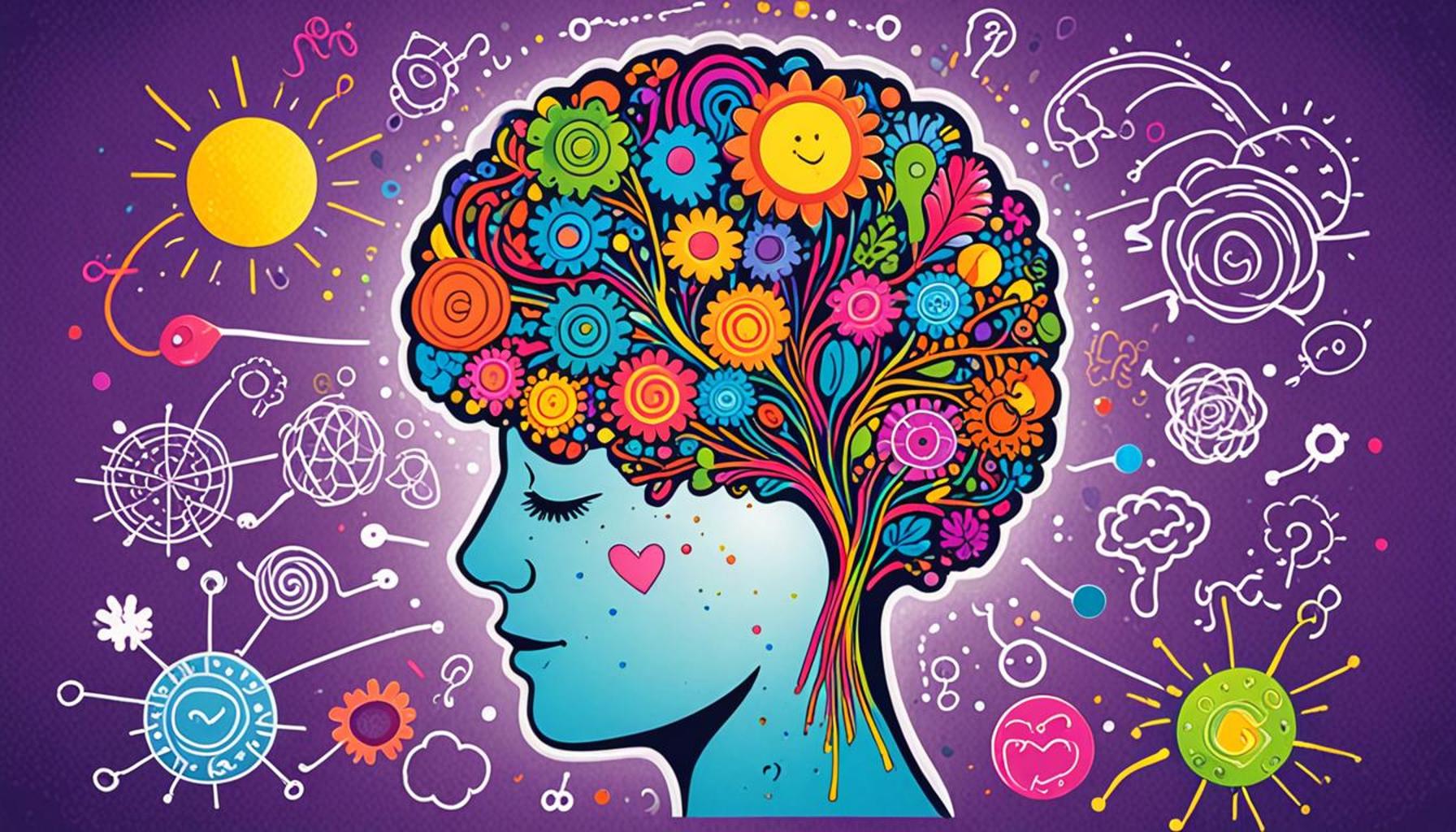Boost Growth Mindset Importance of Metacognition in Learning Strategies

Understanding Metacognition in Learning
In the landscape of education and personal development, metacognition plays a crucial role in shaping effective learning strategies. Metacognition, or the awareness of one’s own thought processes, enables individuals to reflect on how they learn. This self-awareness fosters adaptability, which is a key component of a strong growth mindset.
The Relevance of Metacognition
Incorporating metacognitive strategies not only enhances learning efficiency but also prepares learners to face challenges with a positive attitude. Understanding one’s cognitive patterns allows individuals to tackle obstacles creatively, transforming setbacks into opportunities for growth. This approach ensures that learning becomes a lifelong endeavor.
Top 5 Metacognitive Strategies
As we delve deeper into this vital topic, we will explore the top five metacognitive strategies that can amplify a growth mindset. These strategies are invaluable tools for anyone seeking to enhance their learning process. Prepare to unlock new perspectives and techniques that will empower your journey toward personal and academic success.
YOU MAY ALSO LIKE: Read this other article
Top 5: The Importance of Metacognition in Learning Strategies for a Growth Mindset
In today’s fast-paced and complex educational landscape, the concept of metacognition has emerged as a fundamental aspect in fostering a growth mindset among learners. Understanding how we think about our thinking enables individuals to develop strategies that reinforce the belief that abilities can be cultivated through dedication and hard work. But why is metacognition so pivotal in driving a growth mindset? In this article, we will explore the top five elements highlighting the significance of metacognition in learning strategies to empower a growth mindset and help students maximize their potential.

5. Enhanced Self-Regulation in Learning
Self-regulation is a critical aspect of metacognition that empowers learners to manage their own learning processes effectively. This self-guided discipline is essential in setting objectives, monitoring progress, and adjusting efforts when necessary. By integrating metacognitive strategies, students become acutely aware of their strengths and weaknesses, allowing them to devise study plans that are both efficient and effective.
Key self-regulatory strategies include:
- Setting clear, achievable learning objectives: Students learn to outline specific goals tailored to their personal learning trajectories.
- Monitoring comprehension and adjusting strategies when necessary: Regularly assessing understanding ensures learning is on track.
- Seeking feedback to understand performance better: Constructive criticism helps refine both cognitive strategies and personal determination.
These strategies encourage a growth mindset by fostering persistence and resilience. When students face setbacks, they are encouraged to view them as opportunities for growth, rather than as fixed limitations on their abilities. Such a perspective propels students past momentary failures and fuels lifelong learning.
4. Improved Problem-Solving Skills
Metacognition plays a vital role in developing strong problem-solving skills. It provides learners with the tools to evaluate their thought processes, select suitable strategies, and adjust their approaches in response to different challenges. This dynamic facilitates the nurturing of a flexible mind, an essential attribute of a growth mindset.
Learners with high metacognitive awareness can tackle difficult problems with a degree of adaptability, equipping them to:
- Analyze what strategies work best for different types of problems: Understanding when a strategy is effective can streamline problem-solving.
- Identify potential obstacles and plan how to overcome them: Mitigating unforeseen challenges prepares learners for a variety of scenarios.
- Reflect on past experiences to inform future decision-making: Lessons from the past are invaluable for evolving future strategies.
Consequently, learners become more adept at engaging with complex tasks, prepared to confront difficulties without fear of failure. This proactive attitude is crucial in navigating both academic and real-world challenges effectively.
3. Motivation and Engagement
One of the most compelling aspects of metacognitive strategies is their ability to enhance motivation and engagement in learners. When students develop a keen understanding of their cognitive processes, they are more inclined to take control of their own educational journeys. This sense of ownership fosters increased intrinsic motivation, which is a powerful reinforcement for a growth mindset.
Moreover, engaged learners typically:
- Utilize various resources to expand their understanding: A diverse approach to learning broadens perspectives and deepens knowledge.
- Join collaborative learning environments that promote discussion and feedback: Interaction with peers can stimulate new insights and strategies.
- Continuously seek personal growth beyond formal education: Lifelong learners thrive on the constant acquisition of new skills and knowledge.
This heightened motivation is especially vital in challenging situations, as it boosts resiliency and a firm commitment to long-term aspirations. Students who are engaged and invested in their learning are poised to overcome barriers with confidence and tenacity.
2. Enhanced Metacognitive Awareness
Developing metacognitive awareness is crucial for learners aspiring to cultivate a growth mindset. This awareness involves a comprehensive recognition of one’s thought processes, strengths, and preferred strategies. Awareness not only heightens self-understanding but also empowers learners to tailor strategies to meet their unique needs and goals.
Through metacognitive awareness, students are encouraged to:
- Reflect on their learning techniques and their effectiveness: Regular evaluation of techniques fosters continuous improvement.
- Adjust strategies to suit different learning contexts: Flexibility in approach is key to tackling varied subject matter.
- Understand the importance of persistence and adaptability in achieving goals: Acceptance of iterative learning processes fortifies a commitment to progress.
This awareness provides a safe space for continuous self-enhancement, directing students toward a resilient growth mindset. It is the bridge between a desire to learn and the execution of effective learning strategies.
1. Building Resilience and Adaptability
The pinnacle of metacognition’s impact on learning strategies lies in its ability to foster resilience and adaptability. When learners incorporate metacognitive strategies, they become adept at managing both failures and setbacks with grace. By reflecting on setbacks and acknowledging that mistakes are a natural part of the learning process, learners cultivate a powerful growth mindset.
Essential components of resilience and adaptability include:
- Viewing challenges as opportunities for growth: Challenges spark progress and innovation when seen in a positive light.
- Understanding the iterative nature of learning and accepting feedback: Constructive feedback is an essential tool for growth and refinement.
- Developing coping strategies for managing stress during rigorous learning experiences: Effective stress management ensures optimal performance.
Ultimately, this foundational resilience enables learners not only to recover from failures but also to persist in their endeavors with renewed vigor and determination. By mastering these skills, students are prepared to face an ever-evolving world, equipped with a growth-oriented mindset that encourages lifelong learning and success in various domains.
| Category | Details |
|---|---|
| Self-Regulation | Metacognition promotes self-regulation by enabling learners to monitor their understanding and control their learning processes. This awareness helps them stay focused and organized in their studies. |
| Goal Setting | Metacognitive strategies encourage effective goal setting, allowing students to set realistic and achievable learning objectives. This leads to a more growth-oriented mentality, as they measure their progress against these goals. |
| Reflection | Through metacognitive reflection, learners evaluate their strategies and outcomes. This critical assessment fosters a deeper understanding of what works and what doesn’t, thus enhancing future learning experiences. |
| Adaptive Learning | Metacognition aids in creating adaptive learning environments where students can adjust their methods based on successes and failures, cultivating resilience and the ability to thrive despite challenges. |
Metacognition plays a crucial role in shaping not just how information is processed, but also how learners adapt and grow from their educational experiences. Each of these categories highlights the profound impact that metacognitive awareness has on fostering a growth mindset among students. By recognizing their own learning processes, students are better equipped to navigate the challenges they face, ultimately paving the way for ongoing personal and academic development.
LEARN MORE: This related article may interest you
Frequently Asked Questions About Metacognition in Learning Strategies for a Growth Mindset
What is metacognition, and why is it important in learning?
Metacognition refers to the awareness and control over one’s own learning processes. It involves thinking about how you think and learn, thereby enabling individuals to regulate their behavior and strategies for better outcomes. The importance of metacognition lies in its ability to help learners identify their strengths and weaknesses, select the most effective strategies, and adapt their approaches based on experience and feedback. This self-awareness facilitates continuous improvement and fosters a growth mindset.
How does metacognition contribute to a growth mindset?
A growth mindset is the belief that intelligence and skills can be developed through dedication and hard work. Metacognition supports this by encouraging learners to reflect on their learning processes, recognize challenges as opportunities for growth, and persist through difficulties. When students are metacognitively aware, they are more inclined to embrace challenges, ultimately fostering resilience and an increased capacity to learn beyond their initial assumptions.
Can metacognitive strategies be taught, and how can educators implement them?
Yes, metacognitive strategies can be taught and cultivated in educational settings. Educators can implement these strategies by encouraging students to set specific goals, monitor their progress, and regularly reflect on what works and what doesn’t. Techniques such as self-questioning, peer teaching, and the use of learning journals can enhance students’ metacognitive abilities. By integrating these practices into the curriculum, educators can promote independent and self-regulated learning.
What are some common metacognitive strategies students can use?
Students can utilize various metacognitive strategies to enhance their learning, including self-questioning, where they consciously inquire about their understanding and learning process. Another strategy is to set and review learning goals, which helps maintain focus and direction. Additionally, students can benefit from summarizing information to solidify understanding and using concept mapping to visualize relationships between ideas. These strategies collectively empower learners to become more proactive and effective in their educational pursuits.
YOU MAY ALSO LIKE: Read this other article
Conclusion: Embracing Metacognition for Growth
As we journey through the terrain of learning and development, the significance of metacognition in fostering a growth mindset cannot be overstated. This cognitive awareness forms the bedrock of effective learning strategies, enabling individuals to not only understand their own thinking processes but to also steer these processes toward continuous improvement.
The main takeaways from this exploration underline that metacognitive strategies enhance self-regulation, critical thinking skills, and ultimately, the ability to embrace challenges as opportunities for growth. These skills are vital in the modern fast-paced academic and professional landscapes, where the ability to learn and adapt is paramount.
- Self-awareness is at the core of metacognition, helping learners to identify their strengths and areas for improvement.
- Reflection not only reinforces learning but is pivotal in developing a resilient mindset that thrives on feedback and learning from failures.
- Goal-setting, informed by metacognitive insights, allows for a structured and clear path towards growth.
- Self-monitoring encourages learners to evaluate their progress and adjust strategies proactively.
- Adaptability ensures that learners remain flexible, ready to innovate when faced with unforeseen challenges.
Ultimately, the integration of metacognition into learning strategies ensures that individuals are equipped with the tools necessary to not just consume information, but to transform it. In doing so, they cultivate a mindset geared toward growth, one where learning is recognized as a lifelong journey. This approach not only enriches personal development but lays a foundation for success in an ever-evolving world. The potential of metacognition in this context invites further exploration and application, promising untold benefits for those willing to delve deeper into their own cognitive processes.



